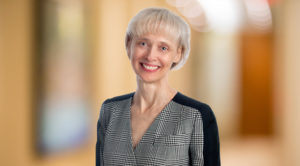Tackling diversity and inclusion in science
A new 3M study suggests Canadians believe very strongly in science ― but we need to prioritize a more inclusive science and technology workforce
A NEW STUDY is bolstering the case for more of a focus on diversity among the ranks of scientific experts, says London-based 3M Canada, which found that the majority of Canadians believe that doing so is crucial to meeting the twin challenges of the pandemic and the climate crisis.
The research comes out of 3Ms annual State of Science Index, which measures global attitudes about the role of science in development. “In 2021, there is a sense of optimism around the world that science can help solve the world’s challenges,” the study found. “In Canada, people see STEM professions as a key to improving our quality of live, but barriers remain to accessing STEM education.”
 3M Canada president, Penny Wise
3M Canada president, Penny Wise
Eighty-seven per cent of Canadians, the study found, agree that it is important to increase diversity and inclusion in STEM fields, while 92 per cent believe that the world needs more people entering these careers. But more than two-thirds — 68 per cent — acknowledge that minority groups don’t get the same access to STEM education as white students do. And that, ultimately, serves as an impediment to achieving a more sustainable future and economy.
“Diverse experiences and perspectives working together leads to more effective solutions,” says Penny Wise, president of 3M Canada. “The 3M State of Science Index results underpin the need to unite educators, government, corporations and families to ensure underrepresented students have equal access to STEM education.”
Story Continues Below
Good timing, too, as the study found that what Canadians think of as the most pressing concerns are not political or economic, but medical and environmental. While Covid was the most cited problem that people hope science will solve, the rest of the top five are environmental: climate change, plastic pollution, air quality and renewable energy sources.
“For decades, STEM education has focused on western philosophies and perspectives. It’s time to rethink how we teach STEM to support all ways of thinking,” adds Doug Dokis, director of the National Indigenous Youth in STEM program with Actua, a scientific education charitable organization. “We need to recognize different frames of reference for creating teaching materials and design a system that supports and resonates with diverse world views.”
Story Continues Below
“People at a young age need to be able to see themselves reflected in the science community and have the champions in their life who support those goals,” says Vanessa Raquel Raponi, founder of EngiQueers, a non-profit that works to improve inclusion for the queer community in scientific fields. “To do this we need to lead youth to show them the path to a career in STEM, that it is possible, that there are opportunities for people just like them and that there are supportive programs, educators and champions along the way who will help lift them to an endless array of possibilities.”
“We’re humbled and invigorated to have started this great work alongside some of Canada’s foremost advocates for STEM to deliver these recommendations,” sums up Wise. “And this is just the beginning. Through partnering and sponsoring those who are making a difference, 3M will invest in lifting those voices for years to come.” ![]() Kieran Delamont
Kieran Delamont

